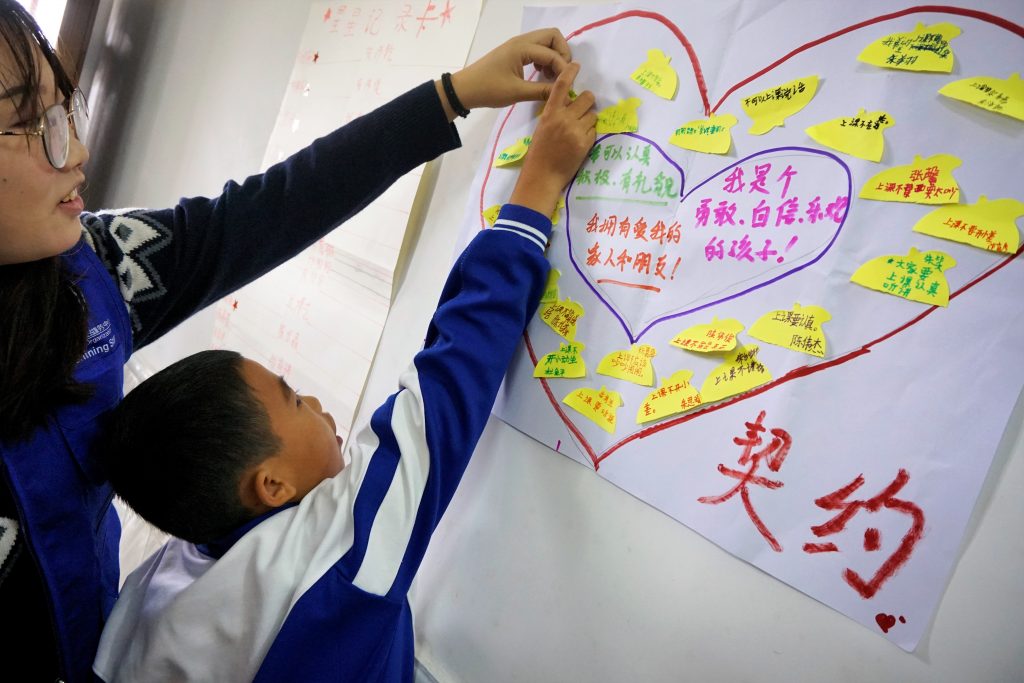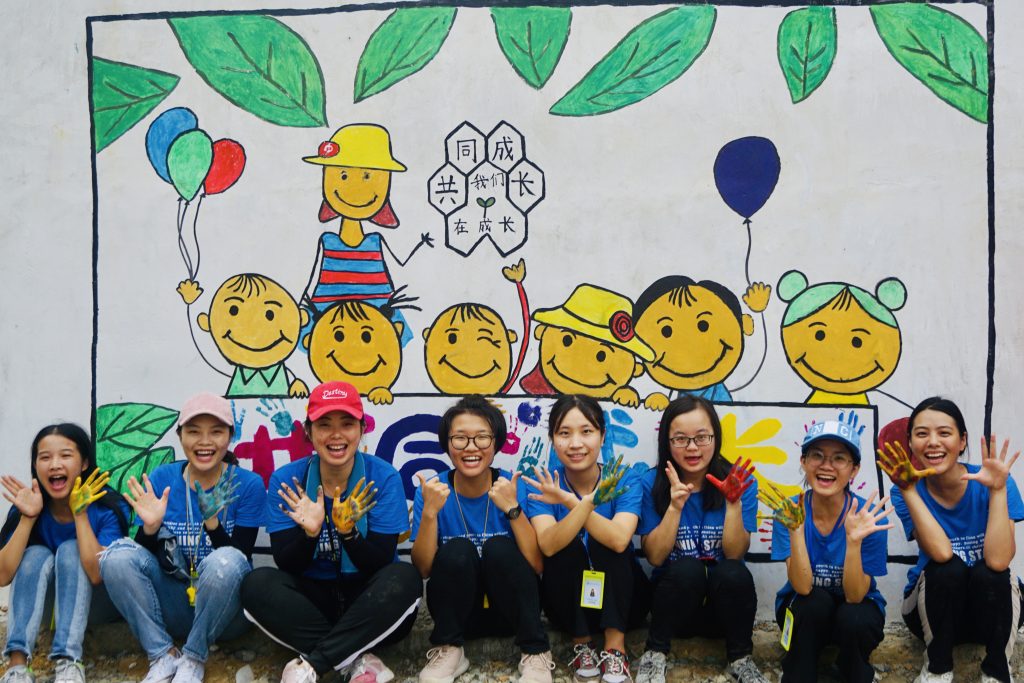Established by four fresh university graduates in Guangzhou, Shining Star was established in 2017 to help children and teenagers in gaining confidence and staying positive.
An extension of a project they were working on as university students, over the course of the last three years they have built a grant program that supported 654 underprivileged students to finish their high-school education as well as built a resilience training program that is now delivered to rural primary schools across Guangzhou.
While they are a young team, they committed themselves to bring together different resources from the public to continue their mission, and through our discussion with Summer Tanwe, Founder and CEO we dive into how this young organization was formed, the challenges faced as they built the organization, and what they see for the future.
It is an organization we are proud to be partnered with, and we hope through this interview, you will be inspired by their work as well!

What was Shining Star’s first program?
Our first program was developed based on one of our university projects that focused on providing psychological resilience training sessions to rural students, and we were very lucky to receive a donation from the NGO who supported us during our university time to cover project costs for the first 2 years.
At the same time, we were also focused on developing more rural school partnerships. I was the only full-time staff at that time, but along with another volunteer, we visited many rural schools near our hometown. We were turned down by many schools because they didn’t trust us, but we were finally introduced to a rural school by another volunteer which helped us to start our project.
Why did you choose to establish a new organization right after graduation instead of finding a job?
While I was studying in university, my friends and I had already established a volunteer group. So, I was worried that if I went to work for a bigger NGO, that the projects we had already started would not be sustained, and that those children we were working with could not be helped.
As a fresh graduate student, where did you gain the knowledge needed to set up the NGO, and how did you seek support needed?
Many of our teachers and alumni have experience on establishing NGOs, so I was able to seek their advice, and learn about their experience. At the same time, as I had focused my graduation thesis on the challenges of establishing an NGO, I was able to learn a lot from my research.
We were also very lucky because the government started to encourage small local NGO’s development, and while the whole process took a couple months, many people supported us during that time.
As a new and young NGO, how did you develop your donor list? How did you gain their trust?
As we could only share our limited experience, some basic data, and stories of our project, it was hard for us at the very beginning and it took about a year before we were able to gain the trust and support from new donors and partners.

With limited staff and resources, how does you and your team develop yourselves?
I think we learn and develop mainly through the below 3 ways:
First, keep working and experience different things. In our first 2 years, my colleague and I almost work every day. This persistency led us to meeting more people, facing more challenges, and gaining more stories, and learning more from our own experience.
Second, we learn a lot from our partners. We are never shy to ask questions when we work with partners, and they are always happy to help us when they learn about our stories.
Finally, although we don’t have much time or money, we try our best to stay current by participating in industry events we have access to.
What are the challenges while running your own NGO?
We have had many challenges indeed. For example, how should we promote our NGO, and to tell the story of our work, so that people want to work with us? How should we design a proposal which can meet the needs of corporatations? How to make better use of local resources to save labor and time? How to build, and retain a passionate team especially during a difficult time.
These are challenges we face, and we are working on overcoming them.
Through all the challenges, what did you learn from the experience?
I think the most important thing is to create good projects. You need to work hard and focus on the mission of the project. But if you want to make an organization great, you also need learn more about the non-profit industry and what is going on with other NGOs.
Establishing a network committee for the organization, so that you can learn professional knowledge from others, and listen to their advice. Working with big branded organizations and companies also help us learn a lot.
Last but not least is to cherish your team, even if you only have one team member. You need to give them opportunities, share positive news, and find ways to keep the team passionate for the mission.
Can you share the top 3 tips you have learned from your past 3 years’ of experience for those who also want to start up NGOs?
I think number one is to always remember your original intention. I would recommend writing it down in a very clear way from the very beginning, so that you won’t lose focus down the road.
Secondly, before you start anything, you must do the research, and understand clearly what are the actual need of your beneficiaries. Otherwise, your project will fail to scale or reach the intended impact.
Lastly, seek out and partner with those who have a common vision as your organization.
What is your 5-year plan for the organization?
We do have a very clear and detail plan for the future.
For our study grant program, we are distributing funding in 2 high schools, but we are planning to add career advice sharing to the current program, and ultimately extend our program to reach 5 to 10 schools.
We already started to design the career course and will kick-off the trial sessions in late 2020.
For our resilience training program, we are now working with two rural primary schools, which we plan to extend to reach 10 to 15 primary schools, as well as bring the program to middle schools by late 2020.
In order to achieve these goals, we are focused hiring and growing our team. We really hope we can find more young people who share our vision and can help our organization grow, so we can help more people in our programs.
=======================================================================================
To know more about Shining Star and its programs, please feel free to visit them via http://www.shiningstargz.com/ or scan the below QR to follow their official WeChat account.
